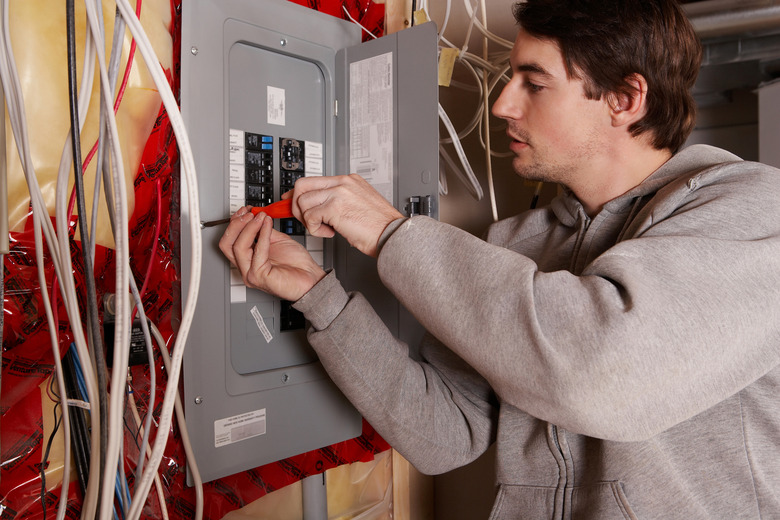What Size Conduit And Wire Do You Use On A 100 Amp Service?
When it comes to doing electrical work on your home, safety takes a front seat. If you install wires that are too small to safely handle their loads, they will routinely overheat and may start a fire. On large lines that carry 100 amps, mistakes of this nature can turn deadly. Before carrying out any electrical work of this nature, make sure that you use the correct gauge wire.
Sub Panels
Sub Panels
In most homes you will only see 100 amp service on secondary service panels, which are often called "sub panels." Many homes have a master service panel that feeds from municipal hookups and one or more secondary panels that feed from the master one. When it comes to the lines connecting master and secondary panels, where the line will carry as much as a full 100 amps, use a 2-gauge non-metallic sheathed electrical cable. The cable must contain one or two hot wires depending on your needs, one neutral wire, and one ground wire. Each wire should be 2-gauge in size. The sheath itself usually has a standardized yellow color.
Wire Length
Wire Length
The question of what gauge wiring to use also depends on the length of the wiring. Electrical wires have resistance, which eats up current. Longer wires have more resistance simply because they are longer and need to draw more power at the source in order for the correct amount of power to reach the outlets. If you plan to run your cable for more than 20 feet, you may want to consider moving up to 1-gauge wire.
Bigger Is Better
Bigger Is Better
When it comes to a 100-amp line and you find yourself on the margin between two gauge sizes, err on the side of caution. If you use too large a gauge, you will have spent a little more money than you needed to spend. However, if you use too small a gauge, the circuits will perform badly and you run the very serious risk of an electrical fire.
Precautions
Precautions
When carrying out electrical work, especially on a service panel, always shut off the power higher up the line. You may need to call your utility company to have them shut off your power at the hookups. After completing any electrical work involving 100-amp lines, arrange for an inspection by a licensed electrician.
